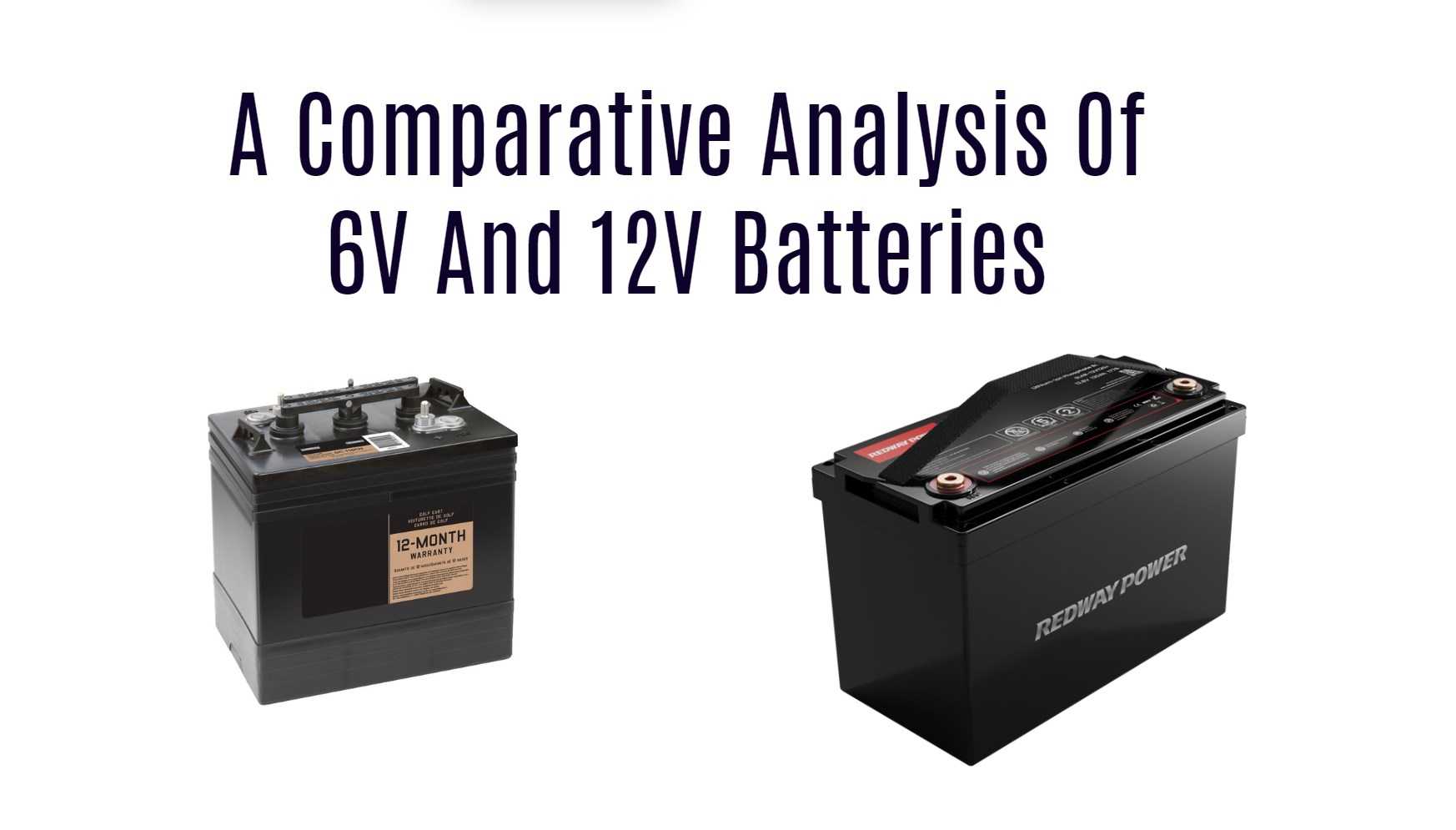When choosing a battery for your needs, understanding the differences between 6V and 12V batteries is crucial. Each type has its unique advantages and applications, making them suitable for various uses. This comparative analysis will delve into the key features, performance metrics, applications, and cost considerations of both battery types.
Voltage and Configuration
Voltage Output:
- A 6V battery provides a lower voltage output but can be combined in series with another 6V battery to achieve a total of 12V. This flexibility allows for customization based on specific power requirements.
- A 12V battery, on the other hand, delivers a direct voltage of 12 volts, making it suitable for most standard applications without the need for additional configurations.
Capacity and Amp-Hour Ratings
Amp-Hour Ratings:
- 6V batteries typically range from about 100Ah to 220Ah, providing substantial capacity for various applications.
- 12V batteries generally offer a wider range, from about 50Ah up to over 300Ah, depending on the design and intended use.
| Battery Type | Voltage | Common Capacity Range |
|---|---|---|
| 6V | 6 Volts | 100Ah – 220Ah |
| 12V | 12 Volts | 50Ah – 300Ah |
Size and Weight
Physical Dimensions:
- Generally, 6V batteries are smaller and lighter than their 12V counterparts. A standard 6V battery might measure around 10 inches long and weigh approximately 60 lbs, while a typical 12V battery could be around 12 inches long and weigh about 70 lbs or more.
Cost Efficiency
Initial Purchase Price:
- Typically, 6V batteries have a lower upfront cost compared to similar capacity 12V batteries, making them attractive for budget-conscious consumers.
Long-Term Costs:
- While the initial cost may be lower, consider factors like lifespan, replacement frequency, and maintenance costs when evaluating total ownership costs.
Performance Efficiency
When it comes to efficiency:
- 6V batteries are often more efficient in low-power applications due to their design, making them ideal for devices that do not require high current draw.
- 12V batteries, however, are generally more efficient in high-demand scenarios where more power is required.
Lifespan and Maintenance Requirements
Understanding the lifespan and maintenance needs of each type can significantly impact your decision:
- Lifespan:
- A properly maintained 6V battery usually lasts around 3 to 5 years.
- A well-cared-for 12V battery can last from 4 to 7 years or longer, depending on usage conditions.
- Maintenance Requirements:
- Both types typically require minimal maintenance. However, regular charging cycles, terminal cleaning, and monitoring fluid levels (for lead-acid types) are essential practices.
Applications of 6V vs. 12V Batteries
Common Uses for 6V Batteries
- Powering recreational vehicles (RVs) and camping equipment.
- Used in golf carts and electric vehicles where space is limited but higher amp-hour ratings are needed.
- Often combined in pairs to provide higher capacity while maintaining a lower amperage output.
Common Uses for 12V Batteries
- Widely used in automotive applications, including cars and trucks.
- Commonly found in marine applications for powering boats.
- Suitable for residential energy storage systems and solar power setups due to their versatility.
Latest Developments in Battery Technology
Recent advancements in battery technology have highlighted several key trends:
- The demand for more efficient energy storage solutions is driving innovations in both 6V and 12V battery designs.
- Smart battery management systems (BMS) are improving safety and efficiency by monitoring voltage levels and optimizing charging cycles.
- Sustainability initiatives are becoming increasingly important as manufacturers focus on environmentally friendly practices in production and recycling processes.
Redway Expert Comment
In our extensive experience at Redway Battery, we recognize that both 6V and 12V batteries serve essential roles across various applications. The choice between them depends on specific power requirements, space constraints, and budget considerations. Understanding their unique characteristics allows consumers to make informed decisions that best meet their energy needs.” In conclusion, both 6V and 12V batteries have distinct advantages that cater to different applications. By evaluating factors such as voltage output, capacity, size, cost efficiency, lifespan, and specific use cases, you can make an informed decision that aligns with your power needs. Whether you opt for a robust 6V solution or a versatile 12V option will depend on your unique requirements.




